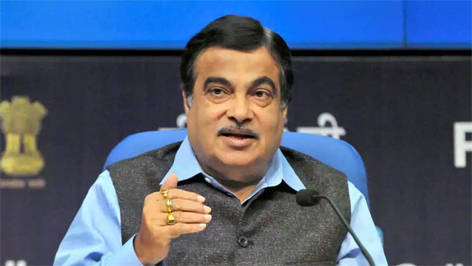NEW DELHI: There is good news for consumers who are going to junk their old vehicles and buy a new one under the Vehicle Scrapping Policy as automakers will give about 5 per cent rebate on the new purchase, Union minister Nitin Gadkari has said.
The voluntary vehicle scrapping policy announced in the Union Budget for 2021-22 provides for fitness test after 20 years for personal vehicles while commercial vehicles would require it after the completion of 15 years.
“Automobile manufacturers will provide about 5 per cent rebate on new car purchases” to the consumers in lieu of scrapping of the old, Road Transport, Highways and MSMEs Minister Gakdari said
“There are four major components of the policy…Apart from rebate, there are provisions of green taxes and other levies on old polluting vehicles. These will be required to undergo mandatory fitness and pollution tests in automated facilities. For this automated fitness centres would be required through out in the country and we are working in that direction,” Gadkari said.
Automated fitness tests will be set up under public private partnership (PPP) mode while the government will assist private partners and state governments for scrapping centres, he said.
Driving such vehicles that fail to pass automated tests will attract huge penalties and also be impounded, the minister said.
This policy is going to be a boon for the automobile sector, making it one of the most profitable sectors which in turn would generate huge employment, the minister said.
The policy is touted as a major step to boost the Indian automobile sector, reeling under the adverse impact of the COVID-19 pandemic.
The minister said it would lead to a 30 per cent boost to the Indian automobile industry turnover to Rs 10 lakh crore in the years to come from the present about Rs 4.5 lakh crore.
Gadkari said: “Automobile industry turnover which is Rs 4.5 lakh crore at present is likely to swell to Rs 10 lakh crore in years to come with India becoming an automobile hub.”
The export component of this which at present is Rs 1.45 lakh crore will go up to Rs Rs 3 lakh crore, he said and added that once the policy comes to practice availability of scrapped material like steel, plastic, rubber, aluminium etc will be used in manufacturing of automobile parts which in turn will reduce their cost by 30-40 per cent.
He said the policy will give a boost to new technologies with better mileage of vehicles besides promoting green fuel and electricity and cut on India’s huge Rs 8 lakh crore crude import bill which is likely to increase to about Rs 18 lakh crore.
“This policy will result in increase in vehicle demand which in turn would boost revenue. Also, ancillary industries would come up in large numbers thriving on junk vehicles,” the minister said.
The minister said initially about one crore polluting vehicles would go for scrapping.
Of this an estimated 51 lakh will be light motor vehicles (LMVs) that are above 20 years of age and another 34 lakh LMVs that are above 15 years.
It would also cover 17 lakh medium and heavy motor vehicles, which are above 15 years, and currently without valid fitness certificates, he said.
It will give a boost to ‘Aatmanirbhar Bharat’ campaign, he added.
Listing the advantages of scrapping, the Road Transport and Highways Ministry had earlier said that an old four-seater sedan will result in a loss of Rs 1.8 lakh in five years while for a heavy vehicle it comes to Rs 8 lakh for a period of three years.
“Structure and framework of scrapping policy is under work and green tax has already been notified. Many states have notified in ineffective way ….We want to advise the state governments through notification under Motor Vehicles Act to consider imposing green tax on older vehicles which cause more pollution,” Road Transport and Highways Secretary Giridhar Aramane had said last month.
Presenting the Budget for 2021-22 in Parliament, Finance Minister Nirmala Sitharaman on February 1 had said that details of the scheme will be separately shared by the ministry.
Gadkari had said the policy will lead to new investments of around Rs 10,000 crore and create as many as 50,000 jobs.
These vehicles are estimated to cause 10-12 times more pollution than the latest vehicles.
The government had earlier said it plans to impose green tax on old polluting vehicles soon in a bid to protect the environment and curb pollution while vehicles like strong hybrids, electric vehicles and those running on alternate fuels like CNG, ethanol and LPG will be exempted. The revenue collected through the green tax will be utilised for tackling pollution.
Under the scheme, transport vehicles older than eight years could be charged green tax at the time of renewal of fitness certificate at the rate of 10-25 per cent of road tax, as per green tax proposal sent to states for consultations after cleared by the ministry.
Industry experts said the policy will provide a fillip to the Indian government’s efforts to position India as a global automobile manufacturing hub, as well as benefit global automakers with manufacturing industries in India, including Japanese giants Suzuki, Toyota, Nissan, amongst others. (agencies)
Trending Now
E-Paper


